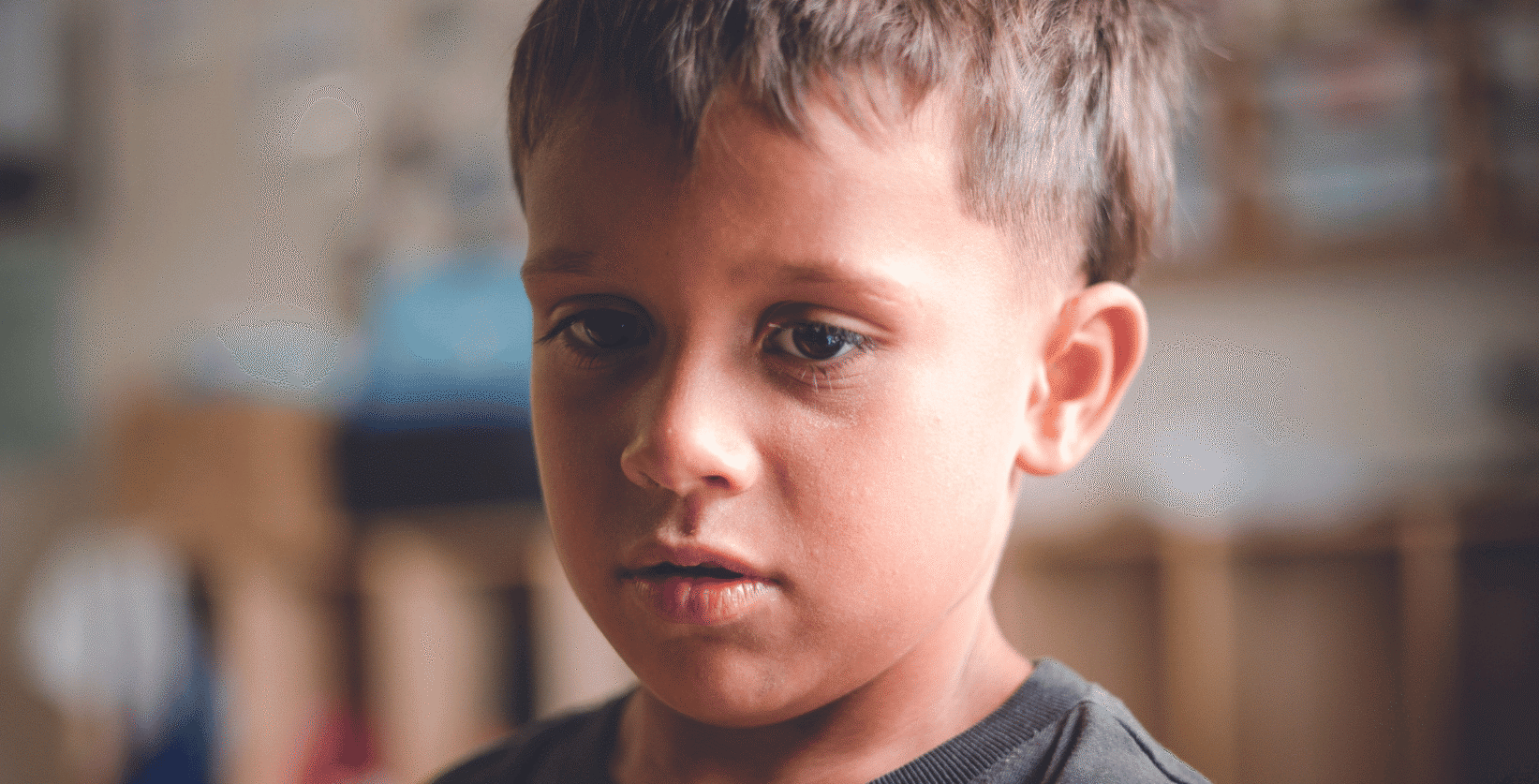The current economic crisis is putting enormous pressure on Victorian families.
Family violence incidents are at unprecedented levels*, and our caseworkers are struggling to keep up with the increased need.
Families like mum Sara** and children Luke** and Zoe** lived in a violent home. The children walked on eggshells, always fearful of their dad. They even developed their own secret sign language to warn one another of his behaviour.
Once their Berry Street caseworker connected Luke with a psychologist, he found the courage to talk to his mum about his dad’s behaviour. He told her that he wished he had a different dad and that he and his sister didn’t want to live at home anymore.
Sara had already been trying to leave. Her children’s father had become increasingly controlling and abusive and she was worried for their safety.
She had become pregnant early in their relationship, and as time passed, Sara discovered that her partner was not the man he’d presented himself as when they met. Over time, he’d become controlling, imposing and eventually, violent.
This is a common scenario. Berry Street has seen significant changes over time in how control is enacted over women by violent partners. It is often more than physical abuse and includes financial control, threats of harm or invasion of privacy through tracking or stalking with new forms of technology like concealed cameras and listening devices.

When Sara’s son Luke told her how he felt about his dad, it helped her to make a breakthrough.
Initially, Sara began looking for a house to rent, so she could quickly and safely leave. But the housing crisis and rising rents made it incredibly difficult.
Every suitable home was too expensive, she applied for many but with the increased competition, she was repeatedly rejected.
Our staff are seeing this scenario frequently right now. Not only is there an increase in demand for our services, but also in the complexity of issues faced by women and children fleeing violence. The economic situation has no doubt made things more difficult and many feel it is impossible to leave.
Children are equal victims when it comes to family violence
The evidence demonstrates that when there is a child or infant (including in-utero) involved in a family violence incident, regardless of whether violence is directed at them, they are significantly and adversely impacted in the long term.
Violence affects children and young people in several ways, including in their:
- development and ability to meet milestones
- sense of security and attachment in their relationships
- behavioural functioning and emotional regulation
- ability to engage in their education
At Berry Street, we advocate for children to be recognised as victims in their own right. In the past, children were often not considered as victims in this context.
While our staff still don’t know the full extent of the harm Luke and Zoe experienced because they haven’t told us yet, we are supporting them with specialised services. Right now, it’s early in their recovery.
Berry Street's role in supporting victim survivors
Berry Street offers critical support services to families experiencing family violence and abuse. These services include:
- Urgent family violence services like safety and risk assessment, emergency accommodation referral and case management
- Early intervention programs that help families stay living together safely
- Trauma-informed support so that families can recover from the trauma and go on to live happy, healthy lives
How You Can Help
Berry Street needs support from donors to continue providing these vital services. Donations of more than $2 are tax deductible.
Every contribution, big or small, helps Berry Street support families like Sara, Luke and Zoe to stay safe.
**Names have been changed to protect the privacy of our service users.



